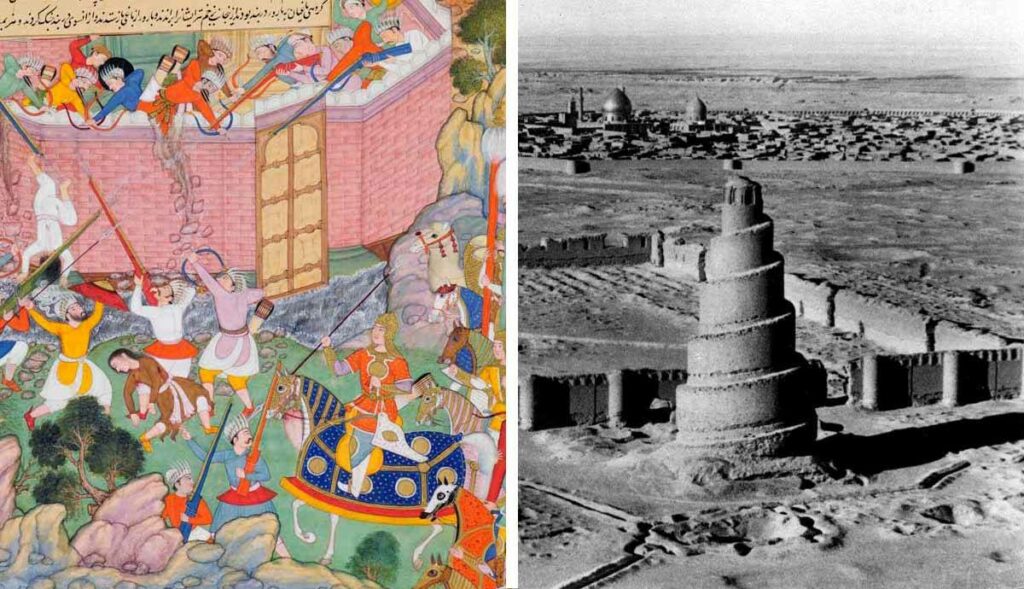The Abbasid Caliphate is often regarded as the golden age of Islamic civilization. Established in 750 AD, the Abbasid dynasty ruled over a vast empire that stretched from North Africa to Central Asia for over 500 years. During this period, the Abbasid Caliphate made significant contributions to various fields such as science, art, literature, and architecture, leaving a lasting impact on the world.
Key Achievements of the Abbasid Caliphate
One of the most remarkable achievements of the Abbasid Caliphate was its promotion of knowledge and learning. The House of Wisdom, established in Baghdad, became a center for intellectual pursuits, where scholars from various cultures and backgrounds worked together to translate and preserve ancient texts from Greek, Persian, and Indian sources. This intellectual exchange led to significant advances in fields such as medicine, mathematics, astronomy, and philosophy.
Under the patronage of the Abbasid caliphs, great works of literature were produced, including the famous collection of stories known as “The Thousand and One Nights.” This period also saw the flourishing of Islamic art and architecture, with iconic structures such as the Great Mosque of Samarra and the Alhambra Palace in Spain being built during this time.

Credit: www.britannica.com
Economic Prosperity and Trade
The Abbasid Caliphate was a hub of economic activity and trade, thanks to its strategic location along the Silk Road and the Indian Ocean trade routes. The flourishing trade networks brought wealth and prosperity to the empire, allowing for the development of vibrant cities and a thriving urban culture.
The development of papermaking and the widespread use of paper currency further boosted economic growth, making the Abbasid Caliphate one of the wealthiest empires of its time.
Religious Tolerance and Cultural Exchange
One of the defining features of the Abbasid Caliphate was its relatively tolerant approach towards non-Muslim communities. Scholars and artists from different religious and cultural backgrounds were able to coexist and contribute to the intellectual and artistic achievements of the empire. This environment of cultural exchange helped in the preservation and transmission of knowledge across different civilizations.
The Decline of the Abbasid Caliphate
Despite its many accomplishments, the Abbasid Caliphate eventually entered a period of decline, marked by internal strife, political instability, and invasions by external forces. The empire fragmented into smaller states, and in 1258, the Mongols sacked Baghdad, bringing an end to the Abbasid Caliphate’s reign of over five centuries.
Legacy of the Abbasid Caliphate
Although the Abbasid Caliphate came to an end, its legacy lived on through its contributions to science, literature, and art, which had a profound impact on subsequent civilizations. Many of the advancements made during the Abbasid era were later transmitted to Europe, laying the groundwork for the Renaissance and the scientific revolution.
The Abbasid Caliphate remains a significant chapter in the history of the Islamic world and continues to inspire scholarly inquiry and admiration for its enduring cultural and intellectual achievements.
Frequently Asked Questions On Abbasid Caliphate : A Legacy Of Power And Influence
What Was The Abbasid Caliphate Known For?
The Abbasid Caliphate was known for its cultural, scientific, and technological advancements.
How Did The Abbasid Caliphate Contribute To Astronomy?
The Abbasid Caliphate made significant contributions to astronomy through translating and preserving ancient texts.
What Was The Economic Impact Of The Abbasid Caliphate?
The Abbasid Caliphate facilitated trade and economic prosperity through a sophisticated system of taxation and infrastructure.
What Role Did The Abbasid Caliphate Play In Education?
The Abbasid Caliphate established institutions and libraries, becoming a center for intellectual advancement and knowledge dissemination.

